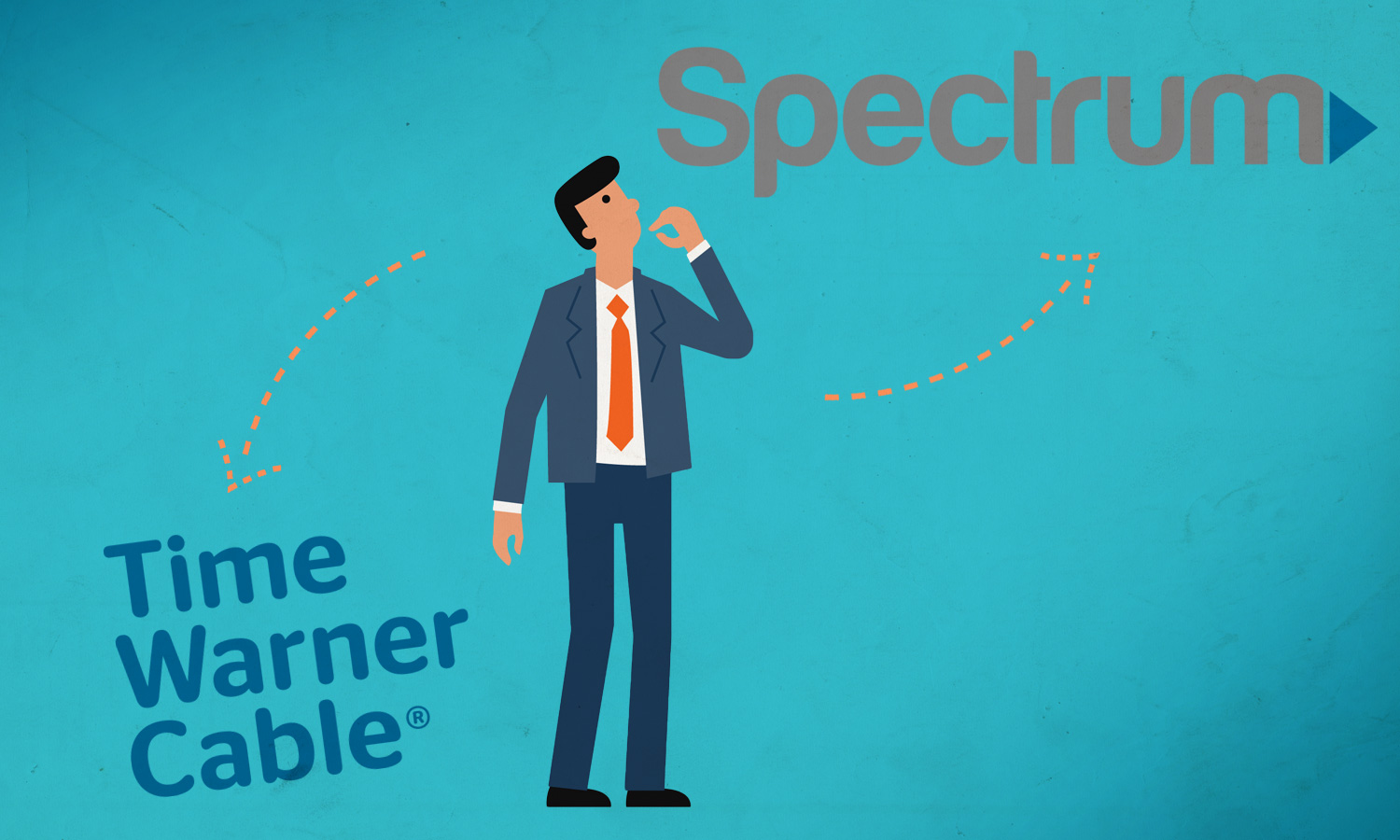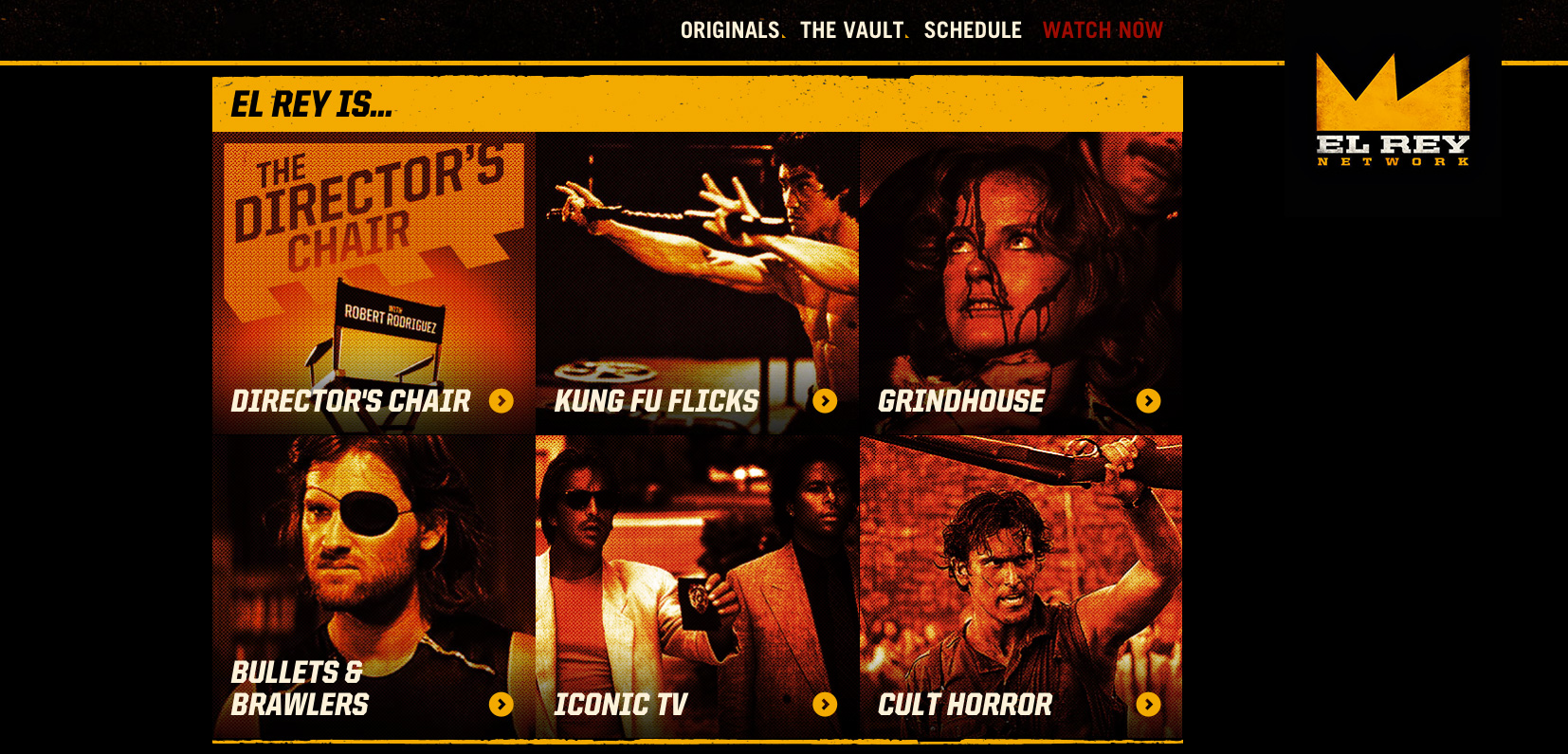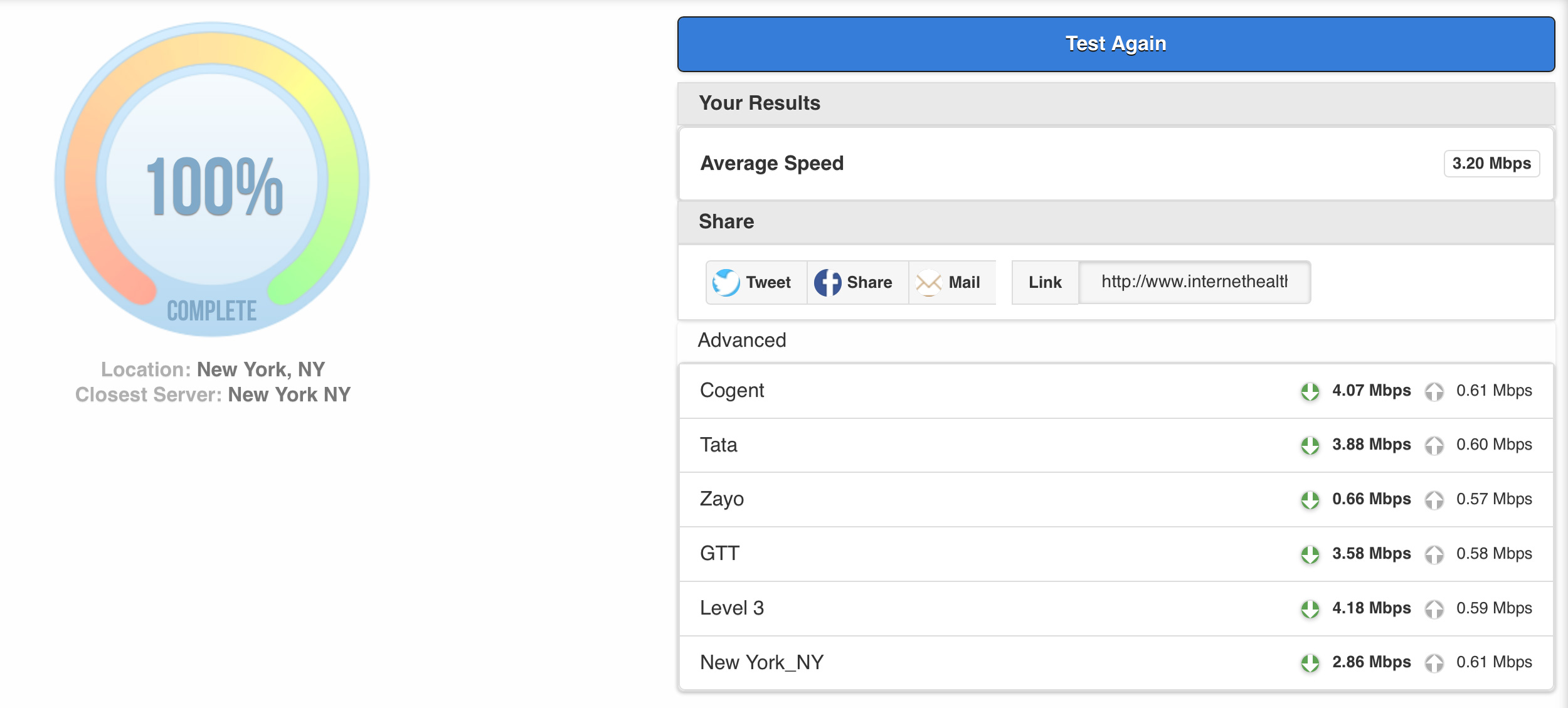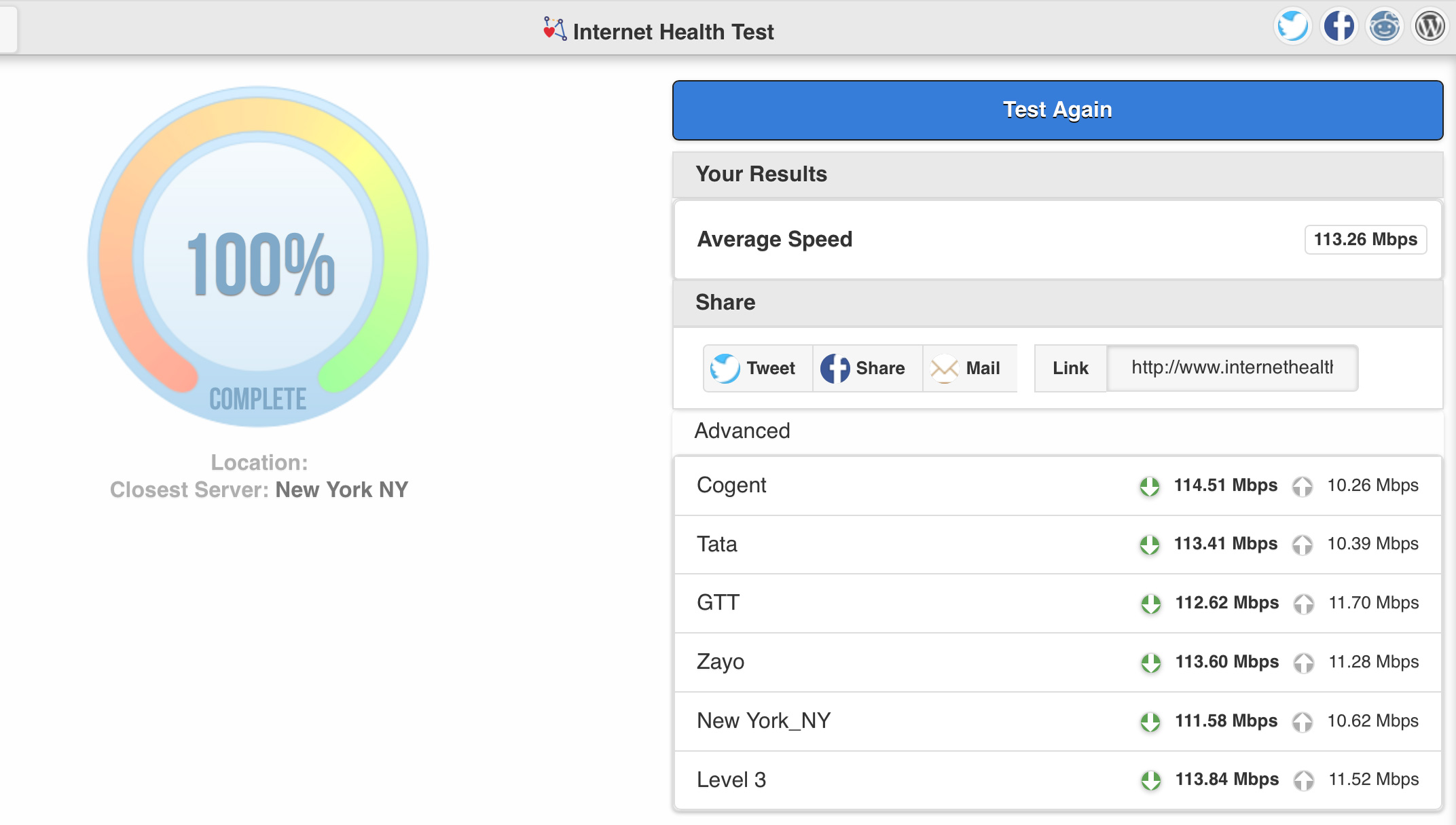I hated Time Warner Cable, but I came back for Spectrum
Verizon's failure to roll out its fastest home internet led me to discover that you can teach an old ISP (Time Warner Cable) new tricks.
Going back to your ex can be a humbling experience, especially when you're not sure if they've changed their ways. Such was the case when I thought I had left bad home internet behind by leaving Time Warner Cable for Verizon and DirecTV. Unfortunately, the latter pair combined for inferior home internet and satellite television, so I had to bite the bullet and call up Time Warner Cable to see what it had to offer.

It all started when I became a Time Warner Cable customer, before it became known as Spectrum (Charter purchased and renamed it). For years, I suffered the consequences of this decision, including dozens of frustrating technical support calls when the company's internet and cable services frequently went on the fritz, creating an experience as reliably chaotic as Sean Spicer's press briefings.
Eventually, the service outages became too frequent to bear, and I switched to DirecTV and Verizon, back when the former wasn't owned by AT&T and the latter offered a discounted package.
DirecTV and Verizon failed me
Of course, since nothing good lasts forever, I realized a year ago that both Verizon and DirecTV were doing me dirty. Once my roommates and I added a second TV to the apartment, we discovered our bandwidth wasn't fast enough to deliver two simultaneous streams. So we began negotiations and discussions about who needed to stream what, and when.
And then, one night at a friend's loft, I found out that one of my favorite channels (director Robert Rodriguez's El Rey Network) was available in HD via Time Warner. I had just assumed that wasn't the case because the big, mighty DirecTV was delivering it in grainy, stretched-out standard definition.

I contacted both DirecTV and Verizon about these issues, and the early results were not good. DirecTV's contract with El Rey (and other channels) didn't include HD, and Verizon told me that its highest-speed DSL was the best it could offer. Yes, I was using DSL and thought it was enough at some point. I was a fool.
On one call, a Verizon rep told me to call back about its faster FiOS in three months, when it would be ready. So I set a reminder on my smartphone and called on that exact day. Turns out, they told me the company's premium home internet was still not available in my area. I'm not alone in that regard, as the city of New York is suing Verizon for failing to meet its promised FiOS rollout date.
They've changed, they say
So, imagine my surprise as my friends and colleagues would tell me stories about how great Time Warner was treating them, and that it was now calling itself Spectrum. The moment went beyond shock, as I honestly didn't believe it.
Sometimes, your ex truly has changed.
But then, I did the math. According to the Internet Health Test, Verizon DSL was giving us a maximum download speed of 7 MBps and an upload speed of slightly less than 1 MBps. Yeah, that’s really slow. Then, I talked to a few friends with Time Warner/Spectrum, and asked them to run the same test.

They returned screengrabs showing download speeds averaging 95 MBps and upload speeds around 7 MBps.

And that was the moment I realized that Verizon might have been robbing me blind.
Convincing my roommates
I proceeded to talk to my roommates, whose memories of Time Warner were just as bad as my own, about switching back. They were hesitant, saying things such as "Don't you remember how bad it was?" and "They were so bad at fixing our service!"
I didn't get the go-ahead from my roommates until I explained that there was a 30-day money-back guarantee. Translation: We weren't committing blindly.
So I didn't press the issue. Or at least I wasn't going to, until a friend visiting me couldn't load a web page fast enough over my home Wi-Fi. My friend, aghast, asked, "What's wrong with your internet?" It turned out that my PS4 was downloading a game update in the background, which ate up every bit of bandwidth.
Ashamed, I later told my roommates this story, and about the potential upside. They weren't interested until I showed them that phone, internet and cable from Time Warner would cost around $80 less per month than we were currently spending. I didn't get the go-ahead, though, until I explained that there was a 30-day money-back guarantee, so we weren't committing blindly.
I have not recommended that we use Spectrum Streaming, the paltry $14.99 streaming service that the company keeps trying to sell my cord-cutting colleagues on.
A deep sigh of relief
I'll remember Thursday, March 23, 2017 as clear as ever, as that was when our household finally got the high-speed internet everyone deserves. That night, as a test, I set up four concurrent high-def video streams, and I saw not a single hiccup.
Now, I can leave my PS4 in rest mode day and night, so I won't boot it up to find out a 7GB file needs to be downloaded before I can play more Persona 5 or Uncharted 4.
Over on the TV side, Time Warner's lineup stayed true to what we expected, giving us all the channels we want in HD. I’m delighted to say I don't think I've seen any standard-definition programming on that screen since that day.
Furthermore, the Time Warner/Spectrum reps I have talked to and who have installed services in our apartment were the nicest customer service agents I've ever worked with. They certainly trump DirecTV's installation rep, who had me sit in his car to prevent a parking ticket (long story), and its retention employee, who pushed me to explain every issue I had with the service when I called to cancel.
So, learn from me, dear reader. Do not settle for substandard internet speeds and grainy low-res television. Sometimes, your ex truly has changed.
Sign up to get the BEST of Tom's Guide direct to your inbox.
Get instant access to breaking news, the hottest reviews, great deals and helpful tips.

Henry is a managing editor at Tom’s Guide covering streaming media, laptops and all things Apple, reviewing devices and services for the past seven years. Prior to joining Tom's Guide, he reviewed software and hardware for TechRadar Pro, and interviewed artists for Patek Philippe International Magazine. He's also covered the wild world of professional wrestling for Cageside Seats, interviewing athletes and other industry veterans.
-
DasLooney Don't let your guard down yet. When I was with TWC, they constantly got my bill wrong and I had to fight various overbills up until I finally pulled the plug. After they switched & became Spectrum I got their $44.99 100Mbps Internet service and everything was well. Now, 4 months into a year contract they're charging me and EVERYONE ELSE that uses that service an extra $5/mo despite being locked into a lower rate for a year.Reply -
henrytcasey Reply19632560 said:Don't let your guard down yet. When I was with TWC, they constantly got my bill wrong and I had to fight various overbills up until I finally pulled the plug. After they switched & became Spectrum I got their $44.99 100Mbps Internet service and everything was well. Now, 4 months into a year contract they're charging me and EVERYONE ELSE that uses that service an extra $5/mo despite being locked into a lower rate for a year.
Oof. I'm somewhat banking on the Triple Play package helping me there, and I'll monitor my bill. They claim that I'll only see a 10$ bump after the first year and a slightly larger bump after the second. But you know, DTASP: Don't Trust Any Service Providers. -
sashaglass Spectrum is worse than TWC - they are taking a step backwards from a tech standpoint - whole house DVR is gone. They are running down the intelligent home program, sticking me with $1000s of home security gear that might not work in the future, while lying to me and saying that it won't/can't work with any other service.Reply
The WORST is that they will not sell my Grandfather the discounted internet that they promised regulators would be available to the elderly and low-income despite the fact that they are more than happy to sell him full-priced internet.
I am a Title II supporter, but if the cable companies do not want to be common carriers, then I will tear down the pole in my backyard and they can figure out how to distribute their services without relying on imminent domain claims. -
henrytcasey Reply19633449 said:Spectrum is worse than TWC - they are taking a step backwards from a tech standpoint - whole house DVR is gone.
Yeah, I didn't mention a whole house sharing the same DVR thing, but it's a slightly annoying thing to me too. Unfortunately/fortunately, I don't really know the other things that you're mentioning. Sounds terrible, and like a good justification to make it so that consumers get more choice and aren't just stuck with one option. -
philip_55 Yeah spectrum is a lot worse than Time Warner, they are now raising the rates of our service here in Louisville area 35%. Yeah "its a new day" ha, that ad cracks me up a new day to screw over the customers with higher prices more like!!Reply -
chrissyny21 I understand your point of view and that it is precisely one man's opinion. However, the mogul that is Spectrum is currently a monopolizer of the cable system in New York City. As a company that is now starting since its merger with Time Warner last year, it is just trying to acquire more customers. Don't be fooled.Reply
Currently 1800 of its union employees are on strike in NYC because the decision to sign a contract where workers would receive pension and benefits through their union is not being accepted by spectrum. Therefore they have been bringing in out of state Contracted workers to perform the jobs of the NY trained techs and engineers. Spectrum has not been treating their employees well in this regard. It has been 5 weeks and although it is claimed that they are willing to come to the table they are not willing to change their policies on how the employees are dealt with in regards to penalties to the employee which may be due to faulty /refurbished equipment. Spectrum's lack of respect for its employees especially it's vetted engineers who have have worked for years in the company only to be told that their pension will no longer exist despite being only a few months from retirement, is disgraceful.
Please consider why they are really able to offer "competitive" prices. It is at the expense of their hard working laborers who have found themselves replaced, while standing up for their rights for the last 5 weeks. Whom even prior to their strike have had difficulty putting food on the tables. This is the "changed" ex, that you speak of. To this end Spectrum would have been better staying Time Warner. -
RominyGirl I loathe Spectrum!! My bill was going to be $146 a month. From December to April my bill has grown to be right at $200. WHY? Seems to be a question that no one at Spectrum can answer. I have to reset my wi-fi modem no less than 5 times A DAY. My DVR boxes don't work 70% of the time. Technicians came to change my boxes out. Problem solved? NO!! I literally have to call them every other day because something isn't working. I called to have items removed but it was going to jack my bill UP to $196. So I called back and said that I wanted to add some more DVR boxes, I live in a one bedroom apartment and don't need any other boxes but was curious as to what would be said. Price would go up to almost $300. Let's see if I removed DVRs and landline my bill would go up so wouldn't you think if I added some my bill would go down?? I've asked to speak to supervisors, CEO would be much better, but no one is ever available. Go figure. I'm in the process of taking this matter to my local news station so that people can be informed. I mean, WHY should I have to pay for the whole months bill when I don't get a full months service that works?? Would you buy a new car that was in the shop 15 days out of the month and not expect a free rental car for the days you couldn't drive it? Spectrum has sooo many lawsuits against them for cheating their customers and we're paying for them. I'm ditching them. Getting wi-fi through another company and buy a streaming device for my TV's. You pretty much get the same thing as you do with cable. People, don't let this company take advantage of you.Reply -
Ivan_77 Don't be fooled by bloggers and "reporters" like this. Obviously TW/Spectrum is trying to improve their tarnished horrible image, rightly so, by PAYING to have "articles" like this "published" on websites like this.Reply
Anyone who thinks TW/Spectrum is a good company is insane, or part of TW/Spectrum. They're the worst company I've ever experienced EVER. And what they've done with the LA Dodgers and to the people of LA is an absolute DISGRACE. DONT BE FOOLED -
henrytcasey Reply19715785 said:Don't be fooled by bloggers and "reporters" like this. Obviously TW/Spectrum is trying to improve their tarnished horrible image, rightly so, by PAYING to have "articles" like this "published" on websites like this.
Anyone who thinks TW/Spectrum is a good company is insane, or part of TW/Spectrum. They're the worst company I've ever experienced EVER. And what they've done with the LA Dodgers and to the people of LA is an absolute DISGRACE. DONT BE FOOLED
I'm happy to inform you of two facts: 1) TW/S didn't pay anything for this article, it was done for the sake of trying to explain how I think others can save themselves from Verizon DSL. 2) This isn't a sports blog. Sorry, that argument is irrelevant. If it were a sports blog, I'd have dedicated my two plus years covering tech to reporting on how the Dolans destroy the Knicks. -
melanie36 I am very upset with Spectrum. I convinced my mom to switch from dish to cable and set everything up a couple of weeks ago. I have gone through the entire process and have waited for the install and now they're telling me that the install visit is just to see if they can hook it up. That is NOT what they told us on the phone. We were told that they would come out and survey the area and drop a line BEFORE tomorrow's "install" date and that it will probable be 7-10 more days to set up a second visit. AND their customer service really stinks!Reply
